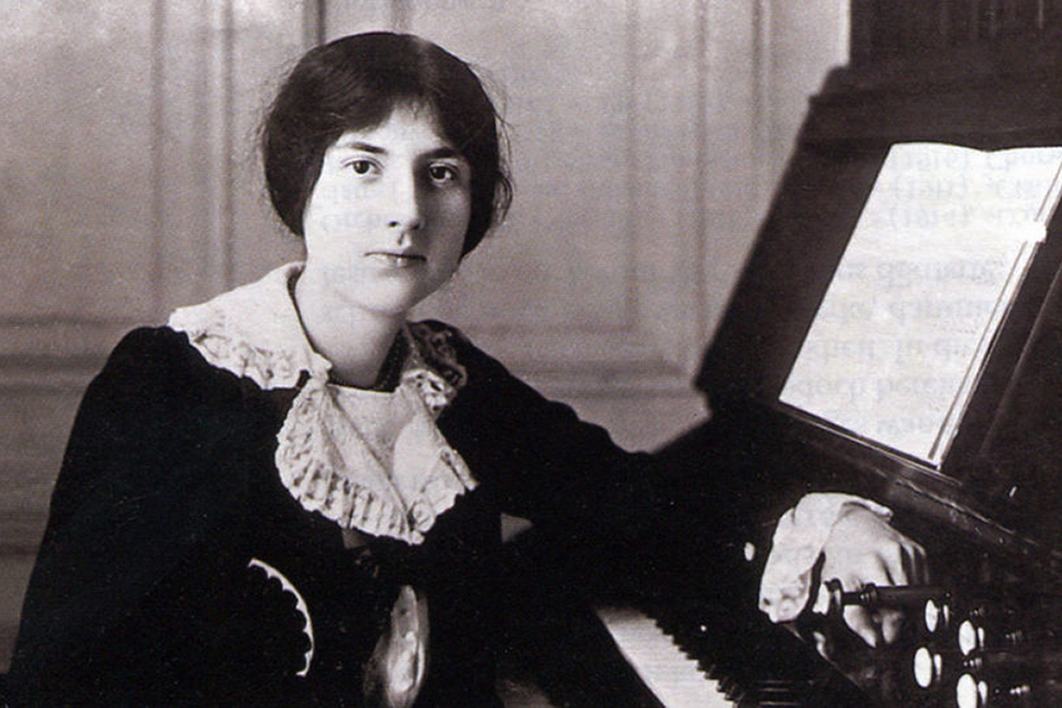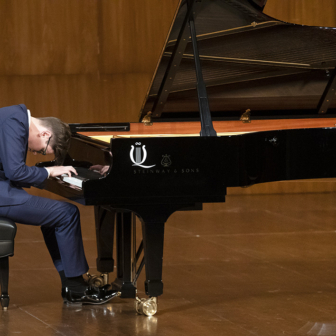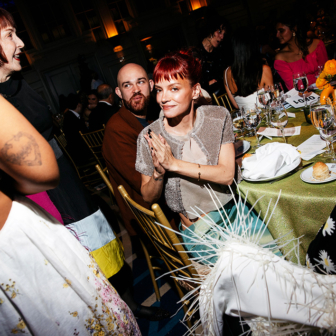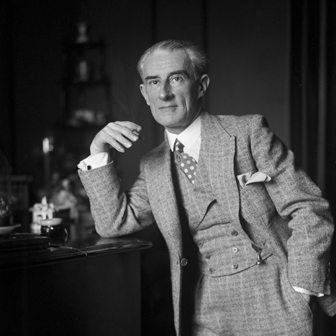One hundred years ago, on 25 March 1918, as German shells rained down on Paris, the fifty-five-year-old Claude Debussy died of cancer. By today’s standards it was a life cut short, yet during the twenty-five years of his mature career Debussy changed music in ways that are arguably still not widely understood. His compositions never sounded especially progressive — they didn’t provoke the public fisticuffs that greeted works by Stravinsky and Schoenberg — but he had rejected conventions of structure and form that his more jagged and dissonant contemporaries never abandoned.
Because Debussy was one of Western art music’s greatest composers, his passing inevitably overshadowed the death, ten days earlier, of another French composer. Here we really can speak of a life cut short, for Lili Boulanger was just twenty-four. Fortunately, she had been a prodigy, composing music from childhood, and her list of works, though short enough, contains far more music than one might expect from a young woman suffering the debilitating effects of the Crohn’s disease that finally killed her.
Boulanger was born Marie-Juliette Olga in Paris in 1893, the second child of a Russian princess, Raissa Mychetsky, and her seventy-seven-year-old husband and former singing teacher, the composer Ernest Boulanger. Always known as Lili, she showed precocious talent, like her older sister Nadia, and began attending music lessons at the Paris Conservatoire at the age of four.
As they grew up, both Nadia and Lili studied composition with Gabriel Fauré, a family friend, and in 1913, aged twenty, Lili won the prestigious Prix de Rome for her cantata, Faust et Hélène. It was a prize coveted by French composers and previously awarded to Berlioz, Fauré and Debussy, though it eluded Nadia; Lili was the first woman to win it. (Ravel tried five times to win it but never did.)
Faust et Hélène remains an impressive work, astonishingly assured for a twenty-year-old. The brooding prelude is redolent of Wagner’s Faust overture, not quite filtered through Debussy’s Pelléas et Mélisande, but already there is enough in the music that transcends the influence of other composers. A dark, dramatic sound world also characterises the orchestral work D’un soir triste (Of a Sad Evening) — there’s a sense of pent-up violence beneath the surface — but its counterpart D’un matin de printemps (Of a Spring Morning) shows the composer creating a diaphanous sheen with her orchestration.
In spite of her failing health, Boulanger threw herself into charitable work during the war, her efforts further exhausting her and probably hastening her death. Arguably part of her war work was the composition in 1915 of a large-scale setting of one of the “penitential psalms,” Psalm 130, De profundis or, in its French translation, Du fond de l’abîme (From the Bottom of the Abyss). Again, and as the title suggests, the orchestration is dark, the harmony chromatic; the deep, rolling timpani sound like distant cannon fire. And yet, just before the end, there is something like a musical transfiguration, as the solo soprano leads the chorus and orchestra out of the depths towards the light of diatonicism at the words “Mon âme espère en Iahvé” (“My soul puts its hope in Yahweh”). This is not the work of a promising child; this is a real composer in full flight.
One of the last works Boulanger completed was a tiny setting of the Pie Jesu from the Requiem. It might lack the ambition of a work such as Du fond de l’abîme — though there is speculation she intended to compose a complete Requiem mass — but it perfectly encapsulates her musical personality. The influence of her teacher Fauré is clear enough — like Fauré in his Requiem, she gives the words to a solo soprano, and the accompaniment is just strings, organ and harp — but the music sounds nothing like his. The harmony is tonally based, but more chromatic than practically any other music I can think of coming from France in that period. Here is Lili, then, still young enough to be influenced by her teacher, but with a voice utterly her own. What would she have become? How would she have developed? And how, one wonders, would music’s patriarchy have found a way to sideline her?
In fact the Boulanger name lived on in the twentieth century through Nadia, who didn’t die until 1979. As a teacher, it was Nadia who oversaw the development of a long list of composers from the 1920s until shortly before her death. Aaron Copland, Elliott Carter and Philip Glass all studied with her, as did Michel Legrand, Quincy Jones and Astor Piazzolla. As a performer, Nadia made some of the earliest recordings of Monteverdi’s music — simple, unfussy performances that stand up pretty well today.
As for Nadia’s own music, a few years after Lili’s death, she put away the manuscript paper. Lili, Nadia insisted, had had that talent; Lili was the composer. •




